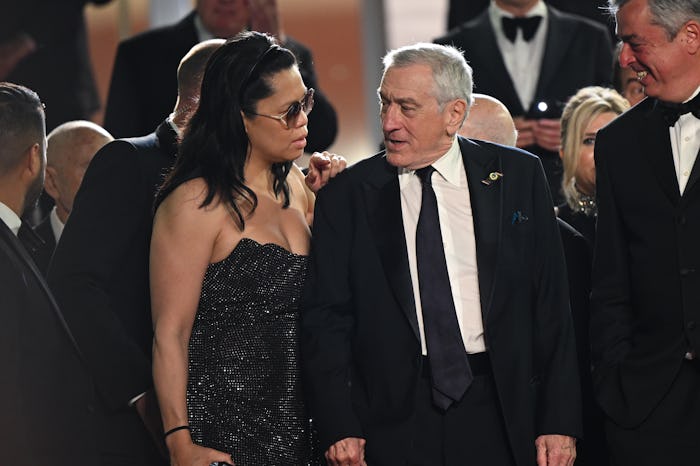Celebrity

Robert De Niro Said “I Don’t Do The Heavy Lifting” Of Parenting His 6-Month-Old
“I’m there, I support my girlfriend. But she does the work.”
When Robert De Niro and Tiffany Chen welcomed their baby girl Gia Virginia Chen-De Niro in May, she was the seventh child for the 80-year-old actor. So you might think, since Chen is a first-time mom, that De Niro would consider taking the lead as the parent with more experience under his belt. Apparently not. The Godfather actor admitted in a recent interview that he doesn’t really do the “heavy lifting” in this parenting situation.
De Niro spoke to The Guardian recently about his life at home with Chen and baby daughter Gia since her birth in May, describing parenting a baby at this stage of his life as “okay” when asked how everything was going. “It doesn’t get easier,” he told the publication. “It is what it is. It’s okay.”
As far as the division of labor in the household with the new baby, don’t look to the Oscar-winning actor to be doing the grunt work. “I mean, I don’t do the heavy lifting. I’m there, I support my girlfriend. But she does the work. And we have help, which is so important.”
He did go on to admit that he enjoys fatherhood, “all of it,” in fact, but every stage of life with his children and grandchildren is different from the next. “With a baby it’s different [than] with my 11-year-old. My adult children. My grandchildren. It’s all different,” he told The Guardian.
As for Chen, first-time motherhood has come with its own set of unique challenges. She spoke to Gayle King for CBS Mornings in July about her Bell’s palsy diagnosis and suffering facial paralysis after giving birth to Gia. “A week after giving birth, that was when it all hit,” she told King at the time. “And I called my doctor, and I was trying to eat. I went to put just a fork of food in my mouth, and everything came out. I couldn’t eat. And then I was starting to slur.” She lost all facial function and was diagnosed with Bell’s palsy, a temporary neurological disorder that affects the muscles of the face and causes paralysis.
This article was originally published on